Over the past few years, Apple has increasingly directed analysts' attention to its growing revenues from a segment it calls Services. However, it's common to hear even Apple's happiest of customers frown at the idea, which is often cynically portrayed as an effort by the company to wring even more money from its premium hardware buyers. But the reality is that Services are largely software— and Software Sells Systems.
Apple loves to talk about Services
In yesterday's FQ2 2019 earnings conference call, the word "services" was stated 26 times, compared to just 17 mentions of 'iPhone" and ten of "Mac."
Apple's Chief Executive Tim Cook noted that "it was our best quarter ever for Services, with revenue reaching $11.5 billion," detailing that success was broad-based across a variety of things that make up the company's Services segment.
"In fact," Cook added, "we had our best quarter ever for the App Store, Apple Music, Cloud services, and our App Store search ad business, and we set new March quarter revenue records for Apple Care and Apple Pay."
He also stated that "Subscriptions are a powerful driver of our Services business. We reached a new high of over 390 million paid subscriptions at the end of March, an increase of 30 million in the last quarter alone."
Apple's Chief Financial Officer Luca Maestri added that Apple paid subscriptions were "growing in strong double-digits," predicting that "we expect the number of paid subscriptions to pass half a billion in 2020." In other words, next year.
Cook spoke of Services as if they were an entirely new category of thing, stating that "they actually help to eliminate the boundary between hardware, software, and service, creating a singularly exceptional experience for our users."
That's some rather creative wording, but the reality is that the Services Cook was describing are effectively software, valuable applications for the hardware products Apple sells. That's important because it helps to clarify that Services is not really some uncharted new territory for Apple where we're waiting to understand how things might work, but rather a quite well-known subject.
The changing climate in Apple's ecosystem
Over its long history as a computer maker, Apple's strategies related to software have shifted dramatically. It was among the first hardware makers to recognize the importance of building relationships with third-party developers way back in the late 1970s. It then actually built some of the most critical software shaping the hardware business in the 1980s: the Macintosh platform that was used by developers to build modern, uniform, predictable, intuitive desktop software.
However, in the mid-'80s, Apple turned around and began to downplay its role as a software maker to avoid contention with its outside developers, a move that— quite counterintuitively— ultimately almost destroyed the company in the 1990s.
It was only in the 2000s— after Apple returned to taking the lead in creating new software for its own platforms— that third parties again began seeing the Mac, iOS and Apple's other new platforms as something worth investing their own resources into.
With Services today, the real question isn't "why is Apple distracting itself in trying to make television, video games, payment systems, news and other practical applications of the hardware it builds." Instead, it's "why hasn't Apple already invested even more into making its hardware inherently and uniquely valuable to users?"
Apple's Services Event flew over many heads
When Apple invited the media to its March event this year, it was clear from the start it would be focusing on a variety of new subscription services rather than any new hardware. After all, it updated its iPads and iMacs and released new AirPods in the week prior to the event just using Twitter and a few press releases. Apple's events exist to drum up excitement for new product releases, but nobody needed to be walked through why faster iMacs or updated iPads were necessary. Did they need that for these new Services?
Apple reserved the entire event to talk about its new Services, leaving the "hands-on area" of the Steve Jobs Theater completely unused for anything but attendee selfies (above). This was perhaps the first time Apple had ever devoted so much attention to Services since Steve Jobs presented— in his final keynote at WWDC 2011— that Apple's new iCloud services were as monumentally important to the company as a strategy as macOS and iOS were. The three were literally given equal standing in WWDC banners and Jobs chose to present iCloud himself, while delegating the other two keynote subjects to his team.
My experience at that event, as well as this year's March event, reminded me a lot of Jobs' 2010 presentation of the first iPad: he clearly articulated how things were going to develop into the future, yet many if not most in attendance couldn't grasp what was being outlined. An overwhelming number of the hot takes scribbled up afterward largely sounded like pretentious clowns desperately trying to appear relevant by insisting that Apple had really jumped the shark this time and was just wasting our time without really offering anything new or compelling.
This year, you could almost feel the audience demanding to know, with crossed arms, "yeah but where's the thick new MacBook keyboard that can eat a bagel and still never miss a keystroke? And where's Apple's response to the Galaxy Fold? And when will Apple ship a 5G iPhone that is as urgently, critically needed right now as WiFi 7 and Bluetooth 6?" The media is sick of being Apple's lapdog, but can't get enough of serving that role for Microsoft, Samsung, and Qualcomm.
The tech media's overwhelming inability to "get" iPad, or iCloud, or today's Services feels like willful ignorance dressed up as condescension from people who think they know what Apple should be doing. Yet clearly they haven't managed to successfully pick up what Apple's been putting down for a decade now while carrying water for rivals that have actually been repeatedly wrong over the same period. That also applies to Apple's Services.
Apple's new Services of software is not just a Netflix
Apple's big push into new Services are often equated with Netflix. And often, Apple is portrayed as making a desperate stab at catching up to the perceived leader in subscription television content. That's not really accurate though.
Netflix has many fans. That includes me; I've subscribed to Netflix since its mailed-in DVD days. But Netflix as a business is a high cost, high-risk enterprise that doesn't actually make very much money. And Netflix largely exists to sell subscription access to the original content it produces. It doesn't really have a hardware business and increasingly is less about other studio's movies and more about its own in-house content, some of which is really great and might never have been produced elsewhere if Netflix wasn't funding its development.
Apple is developing new Services— including Apple TV+— to similarly earn ongoing subscription revenue. But it's pretty clear that Apple TV+ is less like Netflix and more like iTunes: a business that's designed not just to sell access to content, but to produce original content that is tightly linked to Apple's platforms in a way that helps to sell Apple hardware.
Like iTunes, Apple could earn nothing from Apple TV+ and still be creating content that helps sell its sustainably profitable hardware. In fact, iTunes was operated as a revenue-neutral enterprise for some time before Apple couldn't help but make money from it. The point of iTunes was initially to make sure commercial music and later TV and movies were available for Macs and iPods. If Apple had left that up to Microsoft or Sony, it risked having those outside players yank their content from Apple's platforms, or dictate what form of DRM Apple would have to support.
iTunes slowly grew into a viable music business of its own. But the iTunes Store really got valuable once Apple expanded its content sales into iPod Games and then iPhone Apps, which contributed a larger profit margin to Apple as a storekeeper, and also created a universally unique new category of content that only benefitted Apple. When Apple sold a U2 album, Mac and iPod users could play the same songs that Windows PC users could buy elsewhere. But when developers created titles like Angry Birds for iOS, it was content that Symbian, Palm, and Windows Mobile phones couldn't use unless the developer decided to also invest in porting the same content to their other platforms.
So while iTunes kept Macs and iPods relevant in a world dominated by Windows and enabled users the option to choose Apple's hardware, the App Store helped to make iOS dominate in mobile devices, and actively drove sales of iPhones and iPads while making it harder to chose a device running a fringe platform like webOS, WP7, or Tizen. And even with huge volumes of Android sales globally, Apple continues to maintain a lock on software app sales that set iOS apart. Hit games arrive on iOS first. Even Microsoft brought its Office apps to iPad first, despite pundits shouting that Android was leading market share in tablet sales.
A significant chunk of Apple's existing Services is subscription apps. Apple also throws in some licensing revenue, the company's income from its agreement to keep Google integrated into its Safari search, and some other non-hardware revenue such as Apple Care.
But overall, all of its new Services and most of its existing Services business are purely software— useful applications of hardware that help drive hardware purchases in addition to generating revenue on their own. Take a look at what these new services mean for Apple, starting with the first segment on Apple Arcade and then looking at News+ periodicals and TV+ original content.
 Daniel Eran Dilger
Daniel Eran Dilger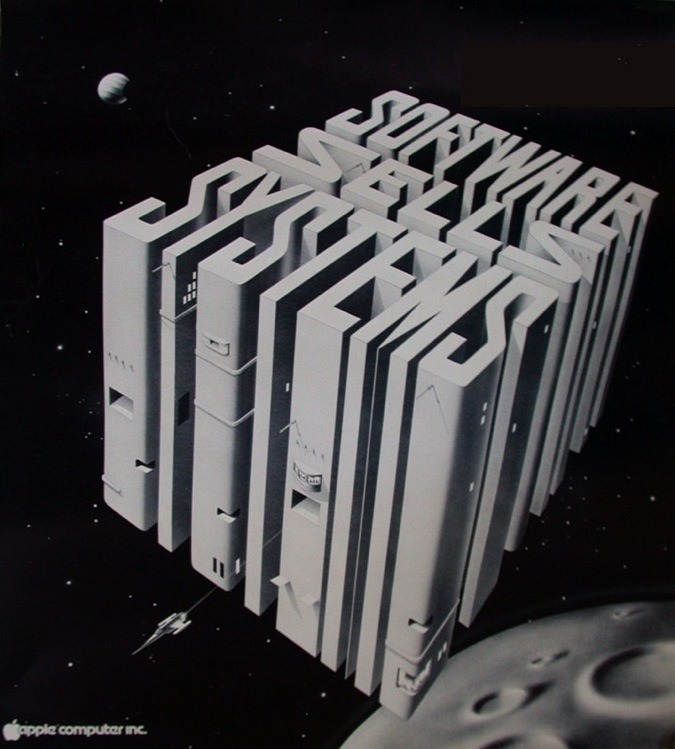
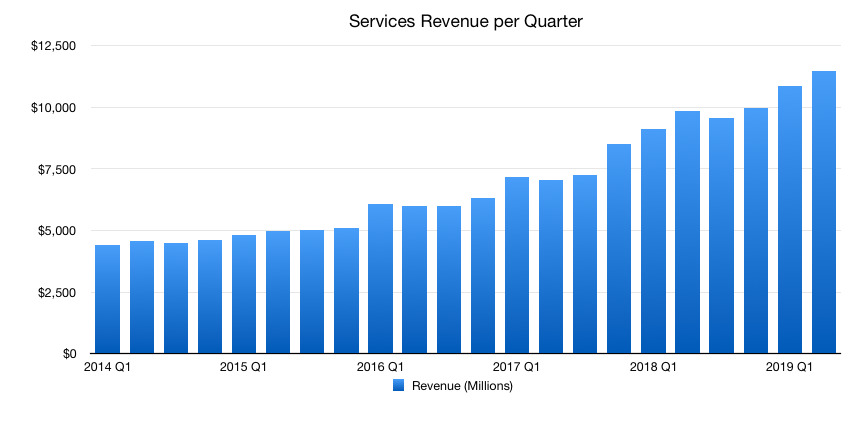
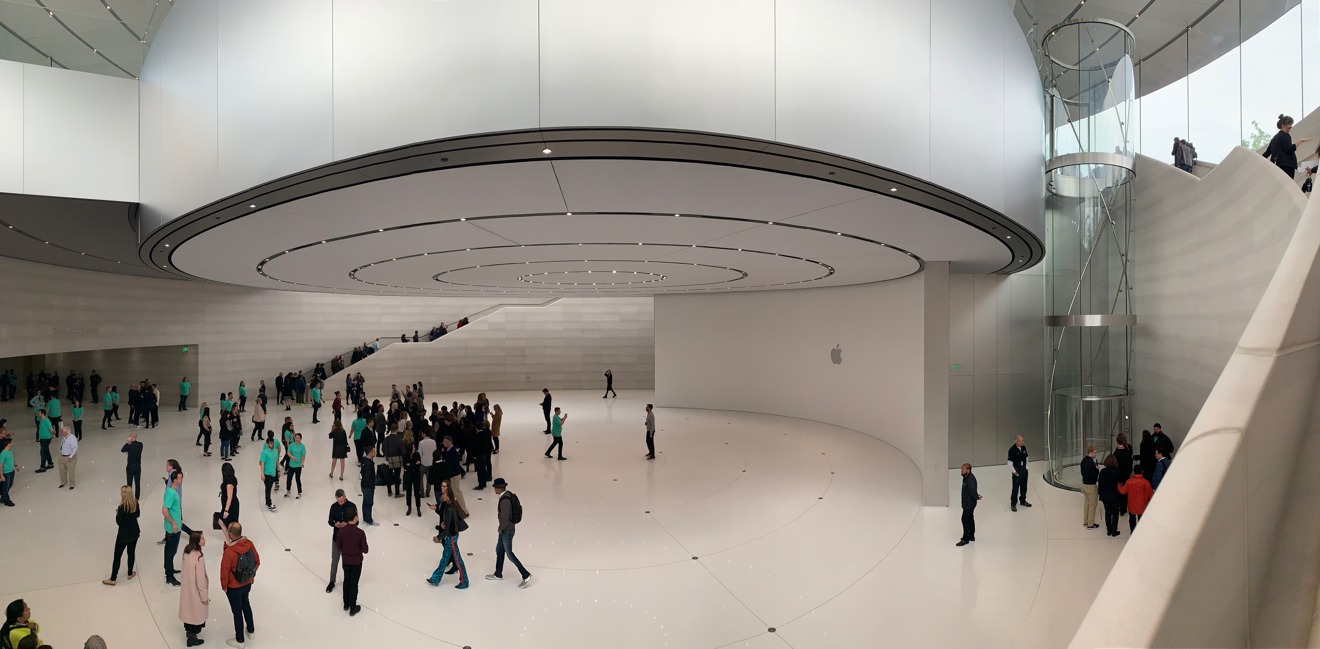
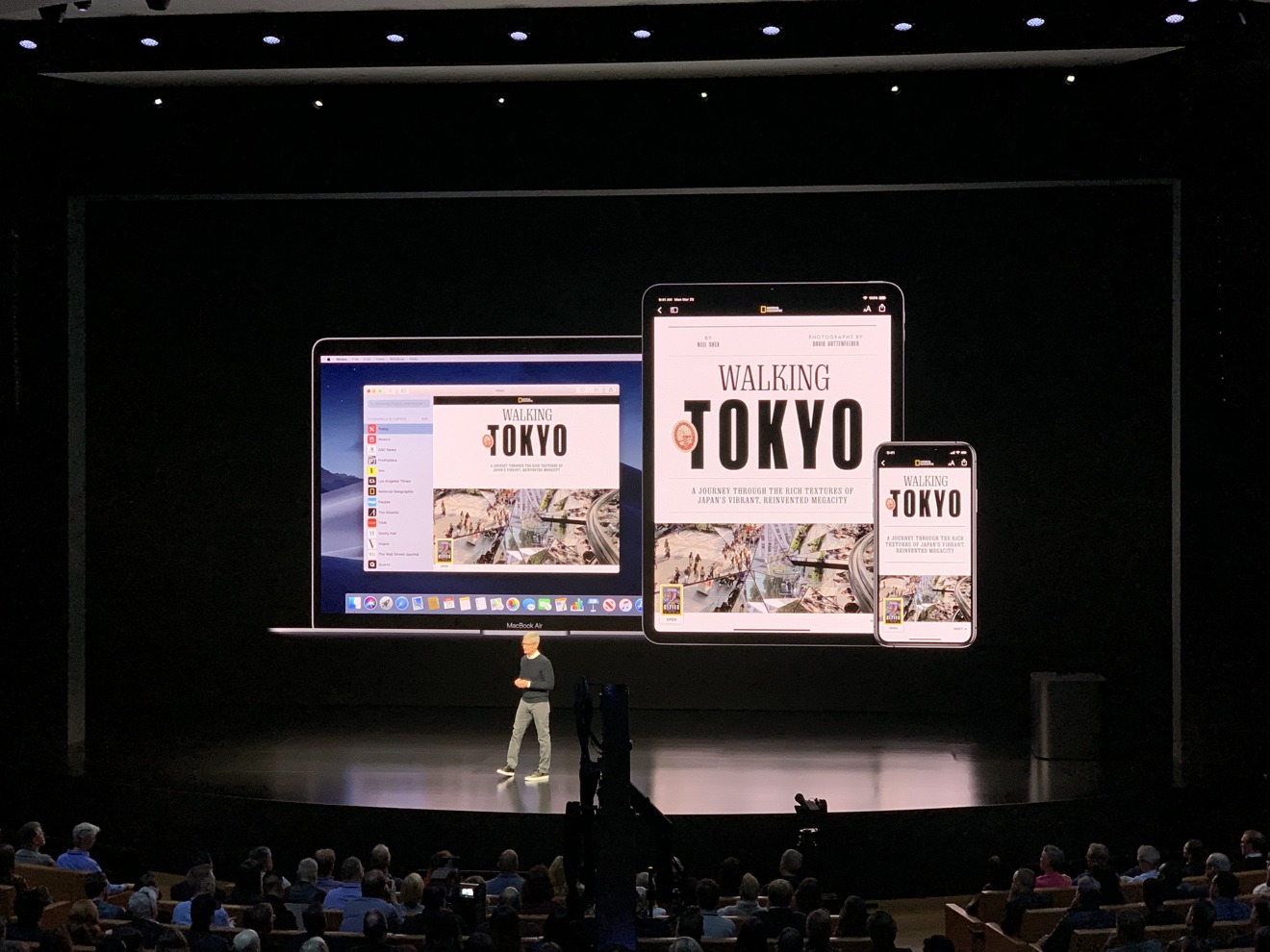







-m.jpg)






 Charles Martin
Charles Martin
 Christine McKee
Christine McKee
 Wesley Hilliard
Wesley Hilliard
 Malcolm Owen
Malcolm Owen
 Andrew Orr
Andrew Orr
 William Gallagher
William Gallagher
 Sponsored Content
Sponsored Content


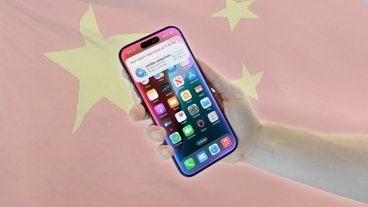





16 Comments
Good observation. I'd propose one tweak: "Services is a Software Subscription"
That is, you don't pay once and have an app on your computer. You pay a monthly fee, so it turns into a steady revenue stream for Apple.
That's all great, but I think hardware will still be the main driver for Apple in the long term. Tim Cook has previously said AR will be bigger than iPhone, and I presume he means the cool AR glasses that Apple will be releasing sometime in the next couple of years. After that we will move onto neural interfaces, and that will be even bigger.
Service subscriptions is a great thing. I pay a monthly fee and get video content, or virus definitions, or storage space, or e-mail, or something like that. Software subscriptions, on the other hand are a total rip off for users. They want me to pay a monthly fee to keep using the same exact software I had last month and if I stop paying suddenly my documents are inaccessible. The argument that it pays for updates is vacuous. There is no impetus for the developers to update because they have a secure revenue stream. Example I paid for 1Blocker. After a couple of years they came out with 1BlockerX a significantly updated version and I paid for that. I have no problem paying for actual updates, real improvements in software. I will however, NOT give up my power as a consumer and buy into this rental software protection racket. There's a lot of sound a fury in the industry about Right to Repair laws. THIS is the subject that consumer protection activists should be looking into. Rental software is literally money for nothing and they hold your documents hostage.
Apple's services are weak. It's the faithful that deal with the shortcoming of Apple Music or iCloud when better options exists. Apple's Services success is essentially a Mercy F***K from consumers. None of their services are indispensable. This is why they have to keep bleating out "Services"..to reinforce the idea that they are important when in fact great products tend to sell themselves.
Let me not crap on Apple too much however. The entire Tech industry is in a state confusion about the next big thing. At first I thought is was just keeping their cards close to their chest but I'm beginning to realize that they really don't know what's next and are trying to build out marginal services and maintain marketshare in a saturate mobile arena until they can figure out what consumers are going to want next.
Services are largely unnecessary and mostly unwanted.